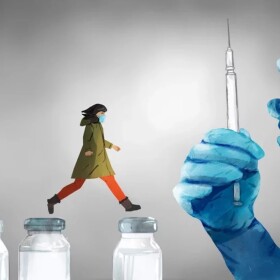
What's Health Got to Do with It?
Saturdays at 4 p.m.
What's Health Got to Do with It? is a weekly talk program that examines where healthcare intersects with daily life, and will help guide the listeners through an increasingly convoluted medical bureaucracy.
These days, health is a lot more than Googling the latest medical breakthrough or seeing your doctor. Staying healthy when you are well and getting healthy when you are sick means knowing how to interact and navigate an incredibly complex healthcare system.
Latest Episodes
-
Give your heart the love it deserves — what sleep habits and stress levels reveal about your heart’s health. Then, after living with heart failure and surviving two heart transplants, a songwriter uses music to inspire hope in others.
-
On this week’s program, how prescription drugs can be used as a window into much larger questions about medicine, culture and uncertainty. Then, from daily pills to long-acting injections, a doctor explains why HIV prevention isn’t one-size-fits-all.
-
Our panel of medical experts discusses the month’s biggest health headlines — from a shrinking childhood vaccine schedule to a reimagined food pyramid.
-
What if the greatest threat to vaccines isn’t science but human psychology? We discuss how fear and misinformation are reshaping global health. Then, an app that works to sharpen focus instead of stealing it.
-
The hidden realities of living with inflammatory bowel disease, from navigating doubt and misdiagnoses to overcoming daily symptoms and setbacks. Then, how a personal misdiagnosis led an emergency room physician to help others advocate for themselves.
-
How physical therapy can help you stay strong, steady and independent as you age. Then, after suffering from heart failure and told he had only a few months to live, a man now known as “the walking guy” made movement his mission.
-
Vaccines, Tylenol and stem cells. We cut through the headlines and myths, delving into what scientific evidence actually says about autism. Then, a biotech innovator explains how personalized medicine is reshaping breast cancer care.
-
As 2025 comes to a close, we reflect on the state of American health care and how decisions made in congressional chambers trickle down to exam rooms.
-
Our panel of medical experts discuss the biggest health headlines of the month from federal changes in vaccine guidance to the effect of sleep on longevity to the reinvention of weight loss drugs.
-
In a season that inspires hope, we unwrap stories of devotion — from a trailblazing children’s hospital to a patient encounter that shaped the career of a transplant nurse and inspired her advocacy work.










